By Abramson
The tricky Cuban operator promises to be even better for his rematch versus undefeated WBC World Heavyweight Champion Deontay Wilder on Saturday night, live on FOX Sports PBC Pay-Per-View.
When Cuban heavyweight Luis Ortiz said on a recent conference call that Deontay Wilderengaged in “illegal things” in their first bout in March of 2018, the comment angered Wilder.
The WBC World Heavyweight Champion felt Ortiz was trying to “tear me down” and disparage his technique, which has made Wilder one of the most prolific knockout artists in the sport’s history.
The exchange was fascinating and touched on a major difference between the two – their boxing styles – as they prepare to meet again Saturday night at the MGM Grand Garden Arena in Las Vegas, live on FOX Sports PBC Pay-Per-View (9 p.m. ET/6 p.m. PT).
For Ortiz (31-1, 26 KOs) to gain revenge on Wilder and finish what he started when he had Wilder hurt in the seventh round of their first encounter, he must rely on a skill-set that is among the best in boxing, forged in a Cuban national system that emphasized discipline and skill above walloping power and which has been cultivated at trainer Herman Caicedo’s gym in South Florida.
“There’s no question that Luis is the most skilled heavyweight in the division and it’s not even close,” Caicedo said in a phone interview. “Luis has true boxing knowledge. He doesn’t try to do anything else. He doesn’t try to be a businessman or start a rap group. When you eat, drink and sleep boxing, you become a master at it.”
Added Caicedo, “Deontay is still learning. He still needs to see a lot of things. We do believe he’s better from the last fight, but there’s still a lot he has to see and learn. Luis has seen it all.”
That may be true but Wilder is a brilliant freelancer, always hunting for an opening to unleash his power and is dangerous late in fights, as evidenced by his tenth-round stoppage of Ortiz the first time they met. When he made the comments on the conference call, Ortiz was referring to Wilder’s habit of throwing punches from wide angles that can sometimes miss their mark, not unlike a pitcher who is a little wild with his fastball.
In the tenth round of their 2018 thriller, Wilder (41-0-1, 40 KOs) seemed to be punching down on the back of Ortiz’s head with both hands before he ended things with a picturesque right uppercut. Ortiz feels the preceding shots crossed the line.
“Blows that he throws with the inside of his fists, punching down from the top of the head,” Ortiz said, “and all kinds of craziness that he does, which makes it very difficult to get settled in any fight and quite frankly should be illegal and borderline criminal.”
Wilder, a bronze medalist in the 2008 Olympic Games who is not known as a dirty fighter, was apoplectic at those comments.
“I would love to know what he meant by that,” said Wilder, making his tenth title defense on Saturday. “That could be good for raising my blood and make me want to even more hurt him more than what I want to do now. So, he needs to clarify that for me before I take it the wrong way.”
Part of what makes the rematch so fascinating is the contrast in their styles. While Wilder is a power-punching dynamo with remarkable conditioning and self-belief, Ortiz is a stylist of the highest order, a walking boxing lesson whose punch output and movements are so smooth, it’s as if he’s gliding across the canvas on one of those moving walkways at airports.
Ortiz, a southpaw, wants a clean fight, one in which skills and movement will determine the outcome. “It’s not in his DNA to throw illegal punches,” Caicedo said. “Everything he throws is well-placed, technical. He’s not a street fighter like Deontay.”
Skills and movement have defined Ortiz’s journey ever since he defected from Cuba in 2009 and spent 2 ½ years away from his family, including his then four-year-old daughter, Lismercedes, who suffers from epidermolysis bullosa, a rare skin disorder that can result in painful blistering.
“ He can bring whatever he is going to bring. No problem. ”Heavyweight Contender – Luis Ortiz
Ortiz relocated by boat to Mexico and then eventually settled in Miami, his family joining him in 2012. They would flourish in the United States – his daughter through treatments at Stanford University and Ortiz through the start of his professional career in 2010.
“I came to this country for my daughter, because she means everything to me and I had to do what was best for her,” Ortiz said. “It was very difficult waiting the two years for them but the feeling of seeing them made up for it. My children are my life. I am a huge family man and I fight for my family. My career is for them. I train for them.”
Ortiz has what you can’t teach: A relaxed confidence in the ring borne of countless rounds of amateur, professional and gym experience. Ortiz started boxing at the age of 10, rising up the Cuban amateur system and following in the footsteps of other great Cuban heavyweights like Felix Savon and Teofilo Stevenson. He went 343-19, capturing a gold medal at the World Cup.
Still, Ortiz wasn’t exactly regarded as a can’t-miss, blue-chip prospect when he signed with Golden Boy Promotions in 2013 at the age of 34, the result, Caicedo said, of boxing politics in Cuba that limited his opportunity to shine on the brightest stages.
Ortiz wasn’t even the lead boxer highlighted on the press release announcing the Golden Boy signings — that honor went to former Cuban amateur star Yoandris “El Nino” Salinas, who was facing Scott Quigg for the vacant super bantamweight title and last fought in 2015. No, Ortiz, then known as “El Mercedez,” was buried further down on the release.
Ortiz, 40, has a remarkably disciplined and well-honed style. He is wildly effective employing conventional boxing moves – a hard jab followed by a straight left hand drove Wilder back early in the first round of their initial meeting. He used angles against Wilder, subtly stepping inside and outside of Wilder’s positioning, slowly walking the harder puncher down with an assortment of head-and-shoulder fakes, feints, varied hand positioning.
While Wilder, 34, is constantly evaluating, trying to find the right openings to punch, always exerting effort to land his big right hand, Ortiz’s output appears effortless, graceful, natural, his left hand glued to his chin, his right hand always in position to strike.
His right-hand counter that started his onslaught in the seventh round of the first fight was a thing of beauty, a punch that Wilder never saw and that nearly led to Ortiz becoming the first Cuban to claim a share of the heavyweight championship.
“I haven’t had any other situation like that,” said Ortiz, “where I hadn’t gotten a knockout in a scenario like that.”
It’s when Ortiz slowed down late in the fight, his movement almost coming to a halt when he became a stationary target for Wilder’s devastating right hands. It happened in the ninth and tenth rounds when Ortiz’s upper body movement and legs slowed and he elected to stand in front of Wilder for too long.
Ortiz’s camp has pointed to a lack of conditioning on the letdown, an issue they say has been corrected with the addition of strength and conditioning coach, Larry Wade, for this fight and a more focused camp. Recent training photos of Ortiz show a more chiseled, honed physique.
“It’s never been about weight loss,” Ortiz said. “I have always fought around the same weight, but I’m definitely leaning out fat and transferring to muscle.”
Caicedo believes Ortiz’s improved conditioning will be the difference this time, an advantage that Wilder won’t be able to overcome, even with his unpredictable and ferocious style.
“You absolutely never know what Wilder is going to do,” Ortiz said. “But one thing for sure is that both mentally and physically, I’m prepared. He can bring whatever he is going to bring. No problem.”
Article courtesy of PBC

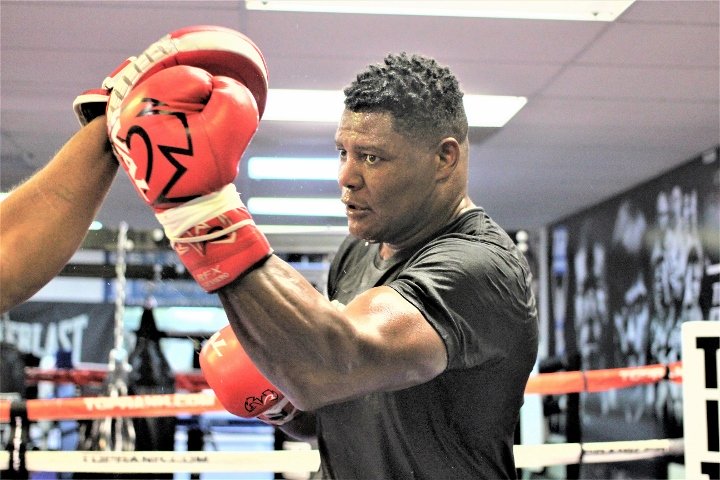
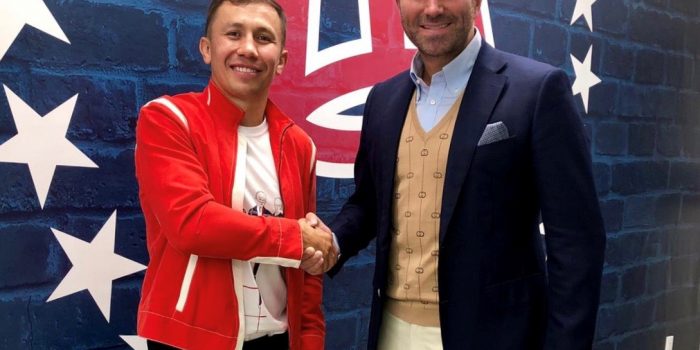
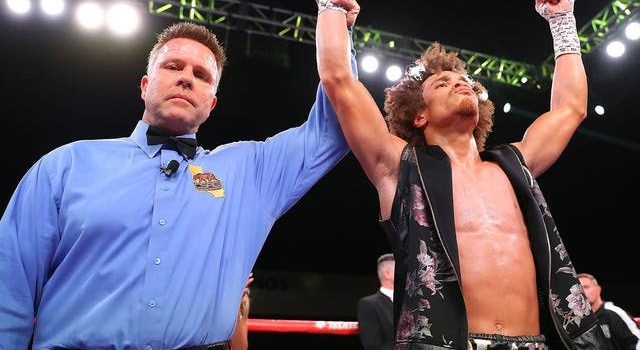
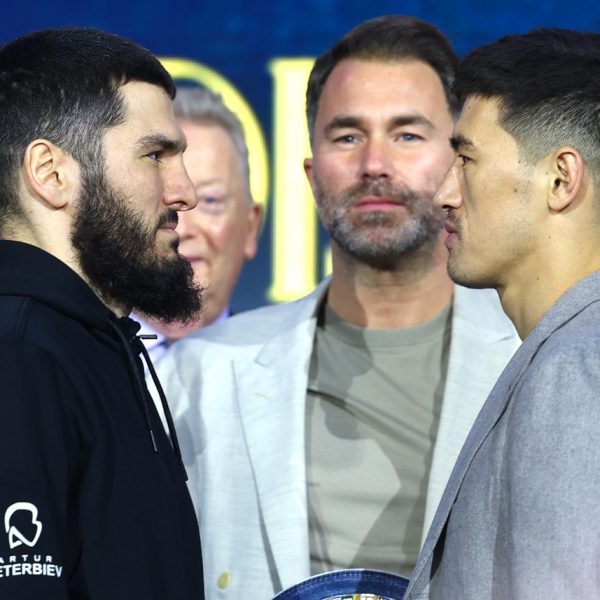
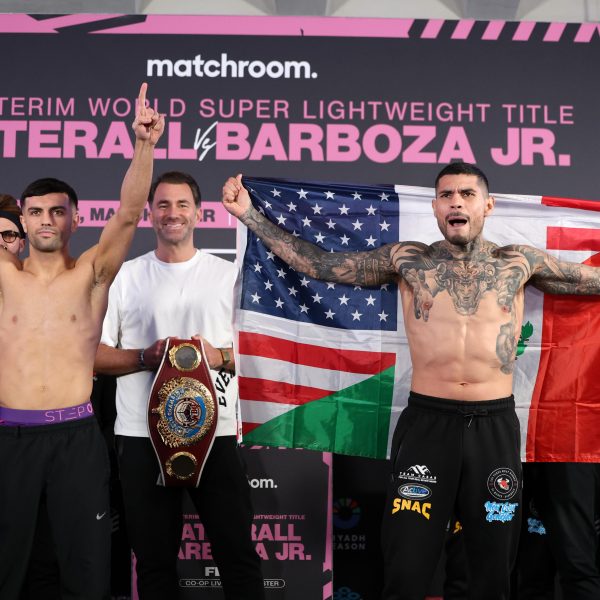
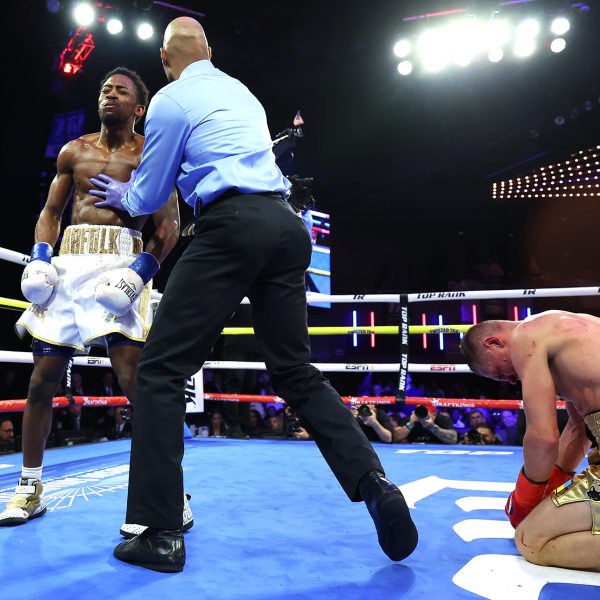


Recent Comments